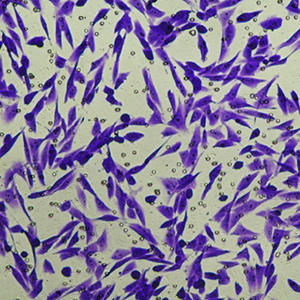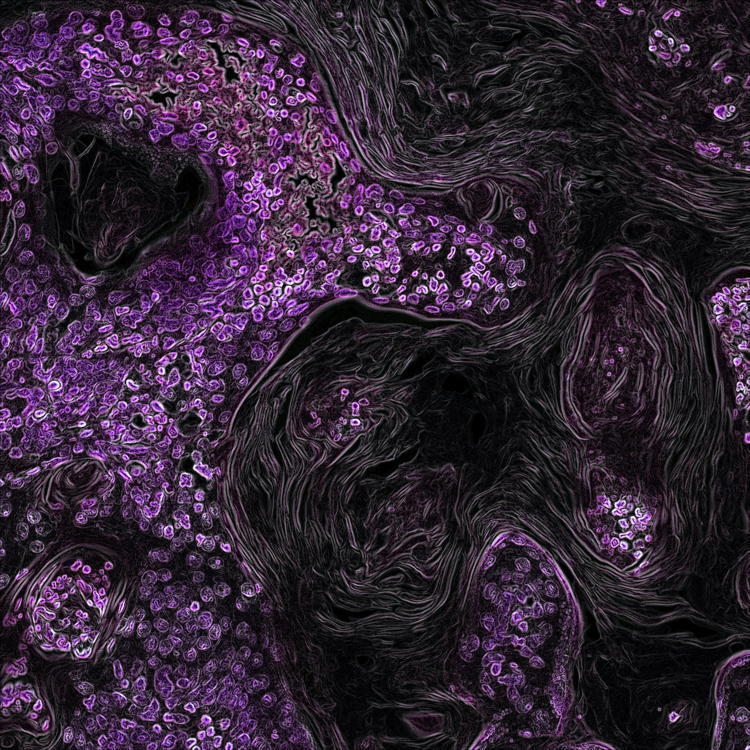Extracellular vesicles from bone mesenchymal stem cells transport microRNA-206 into osteosarcoma cells and target NRSN2 to block the ERK1/2-Bcl-xL signaling pathway

Submitted: 10 February 2022
Accepted: 27 April 2022
Published: 22 June 2022
Accepted: 27 April 2022
Abstract Views: 1054
PDF: 793
HTML: 21
HTML: 21
Publisher's note
All claims expressed in this article are solely those of the authors and do not necessarily represent those of their affiliated organizations, or those of the publisher, the editors and the reviewers. Any product that may be evaluated in this article or claim that may be made by its manufacturer is not guaranteed or endorsed by the publisher.
All claims expressed in this article are solely those of the authors and do not necessarily represent those of their affiliated organizations, or those of the publisher, the editors and the reviewers. Any product that may be evaluated in this article or claim that may be made by its manufacturer is not guaranteed or endorsed by the publisher.
Similar Articles
- Danielle Maximo, Diego Demarco, Style head in Apocynaceae: a very complex secretory activity performed by one tissue , European Journal of Histochemistry: Vol. 68 No. 1 (2024): 1954-2024: 70 Years of Histochemical Research
- D. Martini, A. Trirè, L. Breschi, A. Mazzoni, G. Teti, M. Falconi, A. Ruggeri Jr, Dentin matrix protein 1 and dentin sialophosphoprotein in human sound and carious teeth: an immunohistochemical and colorimetric assay , European Journal of Histochemistry: Vol. 57 No. 4 (2013)
- T. Al-dhohorah, M. Mashrah, Z. Yao, J. Huang, Aberrant DKK3 expression in the oral leukoplakia and oral submucous fibrosis: a comparative immunohistochemical study , European Journal of Histochemistry: Vol. 60 No. 2 (2016)
- Martha I. Dávila-Rodríguez, Elva I. Cortés-Gutiérrez, Roberto Hernández-Valdés, Karla Guzmán-Cortés, Rosa E. De León-Cantú, Ricardo M. Cerda-Flores, Enrique Báez-De la Fuente, DNA damage in acute myeloid leukemia patients of Northern Mexico , European Journal of Histochemistry: Vol. 61 No. 4 (2017)
- A.T.R. Clark, V.M.L. Guimaraes da Costa, L. Bandeira Costa, C.L. Bezerra Cavalcanti, M.J.B. de Melo Rego, E.I.C. Beltrao, Differential expression patterns of N-acetylglucosaminyl transferases and polylactosamines in uterine lesions , European Journal of Histochemistry: Vol. 58 No. 2 (2014)
- M. Derenzini, A. L. Olins, D. E. Olins, Chromatin structure in situ: the contribution of DNA ultrastructural cytochemistry , European Journal of Histochemistry: Vol. 58 No. 1 (2014)
- Wenjing Liu, Yongchun Zhang, Cheng Liang, Xuefang Jiang, Developmental expression of calretinin in the mouse cochlea , European Journal of Histochemistry: Vol. 68 No. 4 (2024)
- C. Loreto, A. Psaila, G. Musumeci, S. Castorina, R. Leonardi, Apoptosis activation in human carious dentin. An immunohistochemical study , European Journal of Histochemistry: Vol. 59 No. 3 (2015)
- Antonio D'Amati, Roberto Tamma, Tiziana Annese, Anna Rizzi, Domenico Ribatti, Mast cells in meningiomas , European Journal of Histochemistry: Vol. 68 No. 2 (2024)
- C. Loreto, L. E. Almeida, M.R. Migliore, M. Caltabiano, R. Leonardi, TRAIL, DR5 and caspase 3-dependent apoptosis in vessels of diseased human temporomandibular joint disc. An immunohistochemical study , European Journal of Histochemistry: Vol. 54 No. 3 (2010)
<< < 31 32 33 34 35 36 37 38 39 40 > >>
You may also start an advanced similarity search for this article.

 https://doi.org/10.4081/ejh.2022.3394
https://doi.org/10.4081/ejh.2022.3394











